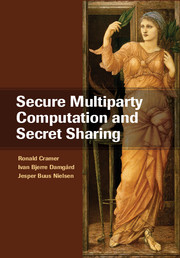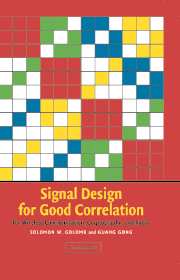Secure Multiparty Computation and Secret Sharing
In a data-driven society, individuals and companies encounter numerous situations where private information is an important resource. How can parties handle confidential data if they do not trust everyone involved? This text is the first to present a comprehensive treatment of unconditionally secure techniques for multiparty computation (MPC) and secret sharing. In a secure MPC, each party possesses some private data, while secret sharing provides a way for one party to spread information on a secret such that all parties together hold full information, yet no single party has all the information. The authors present basic feasibility results from the last 30 years, generalizations to arbitrary access structures using linear secret sharing, some recent techniques for efficiency improvements, and a general treatment of the theory of secret sharing, focusing on asymptotic results with interesting applications related to MPC.
- Covers both multiparty computation and secret sharing
- Takes an information theory perspective
- Describes state-of-the-art optimization techniques
Product details
No date availableAdobe eBook Reader
9781316371404
0 pages
0kg
9 b/w illus. 41 exercises
Table of Contents
- Part I. Secure Multiparty Computation:
- 1. Introduction
- 2. Preliminaries
- 3. MPC protocols with passive security
- 4. Models
- 5. Information theoretic robust MPC protocols
- 6. MPC from general linear secret sharing schemes
- 7. Cryptographic MPC protocols
- 8. Some techniques for efficiency improvements
- 9. Applications of MPC
- Part II. Secret Sharing:
- 10. Algebraic preliminaries
- 11. Secret sharing
- 12. Arithmetic codices
- Part III. Back Material.






